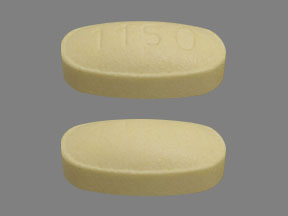
Myrbetriq Coupons & Savings Card – Discount Prices from $117.62
Brand for: Mirabegron er
My prescription
Edit
50MG, Mirabegron ER (30 Tablet Extended Release 24 Hours)
Select pharmacy

CVS
$193.85
COUPON PRICE
Walgreens
$117.62
COUPON PRICE
Albertsons
$307.06
COUPON PRICE
Walmart
$392.71
COUPON PRICEMyrbetriq savings card
Show this card to your pharmacist
Walgreens
$117.62
BIN
ID
PCN
GRP
011867
LHB122E82D
HT
LABH001
Powered by
Related beta agonists prescriptions
More prescriptions for overactive bladder
Related beta agonists prescriptions
More prescriptions for overactive bladder
Price history for Myrbetriq (brand) & Mirabegron ER (generic)
30 Tablet Extended Release 24 Hours, 50MG
Average retail price for Myrbetriq
Average retail price for Mirabegron ER
Average SaveHealth price for Mirabegron ER
Our price history data is based on aggregated prescription data collected from participating pharmacies in America. Our prescription data updates daily to reflect the latest price changes. If you notice a missing data point, it means there wasn't sufficient data available to generate a monetary value for that date.
Over the last 12 months, the average discount price of Myrbetriq is $234.13 using the SaveHealth savings card. That's an average savings of 59.36% on Myrbetriq with our discount card.
*Retail prices are based on pharmacy claims data, and may not be accurate when we don't have enough claims.
Myrbetriq (Mirabegron ER) dosage forms
Dosage Quantity Price from Per unit 25MG 30 Tablet Extended Release 24 Hours $302.70 $10.09 25MG 90 Tablet Extended Release 24 Hours $885.58 $9.84 50MG 30 Tablet Extended Release 24 Hours $298.80 $9.96 50MG 90 Tablet Extended Release 24 Hours $887.40 $9.86
| Dosage | Quantity | Price from | Per unit |
|---|---|---|---|
| 25MG | 30 Tablet Extended Release 24 Hours | $302.70 | $10.09 |
| 25MG | 90 Tablet Extended Release 24 Hours | $885.58 | $9.84 |
| 50MG | 30 Tablet Extended Release 24 Hours | $298.80 | $9.96 |
| 50MG | 90 Tablet Extended Release 24 Hours | $887.40 | $9.86 |
Does Myrbetriq make you pee less?
Myrbetriq (mirabegron) is a medication used to treat overactive bladder. It works by relaxing the bladder muscle, which can help increase the bladder's capacity to hold urine and reduce the urgency and frequency of urination. Therefore, it may help a person experience fewer episodes of needing to urinate.
What to avoid when taking Myrbetriq?
When taking Myrbetriq, it is important to avoid certain things to ensure the medication works effectively and to minimize potential side effects. Patients should avoid consuming excessive amounts of alcohol, as it can increase the risk of side effects. Additionally, they should inform their healthcare provider about all other medications they are taking, including over-the-counter drugs and supplements, to avoid potential drug interactions. It is also advisable to avoid activities that require alertness, such as driving, until they know how Myrbetriq affects them, as it can cause dizziness in some individuals.
Is Myrbetriq linked to dementia?
As of the latest available information, there is no established link between Myrbetriq (mirabegron) and dementia. Myrbetriq is a medication used to treat overactive bladder, and while it has its own set of potential side effects, dementia is not recognized as one of them. However, patients should always discuss any concerns about medication side effects with their healthcare provider.
Can I drink coffee with Myrbetriq?
Yes, it is generally safe to drink coffee while taking Myrbetriq. There are no known interactions between caffeine and Myrbetriq. However, if there are any concerns or unusual symptoms, it is advisable to consult with a healthcare provider.
Does Myrbetriq stop you from peeing?
Myrbetriq (mirabegron) does not stop a person from peeing. Instead, it is used to treat overactive bladder by relaxing the bladder muscles, which can help reduce the urgency and frequency of urination. It may also help with urge incontinence, which is the involuntary loss of urine. If there are concerns about urination while taking Myrbetriq, it is advisable to consult a healthcare provider.
